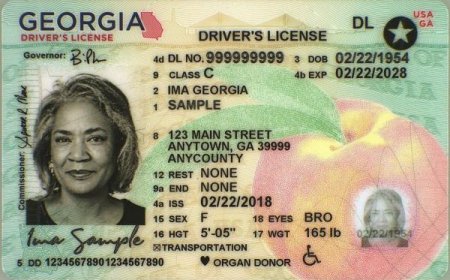The Ultimate Guide to Understanding MCV Blood Test Results
Learn all about the MCV blood test in this comprehensive article. Discover what it is, why it's done, how to prepare for it, and what the results mean. Get answers to common questions and find out what to do if your results are abnormal.

The Ultimate Guide to Understanding MCV Blood Test Results
As part of a routine blood test, the mean corpuscular volume (MCV) test measures the average size of your red blood cells. This test can provide valuable information about your overall health, including the potential presence of anemia or other medical conditions. Understanding what MCV blood test results mean is essential to maintaining good health. In this article, we will provide a comprehensive guide to MCV blood tests, including what they measure, what the results indicate, and what factors can impact your MCV levels.
What is MCV blood test?
MCV blood test is a routine blood test that measures the average size of your red blood cells. It is a part of the complete blood count (CBC) test that examines the number and characteristics of various blood cells. The MCV test measures the size of red blood cells and reports the value in femtoliters (fL).
Why is MCV blood test important?
The MCV blood test is important because it can provide valuable information about your overall health. It helps your doctor to diagnose and monitor a variety of medical conditions that can affect the size of your red blood cells. Some of these conditions include anemia, vitamin deficiencies, liver disease, and bone marrow problems.
What do MCV blood test results mean?
MCV blood test results can be either high or low, and each of these results can indicate a different medical condition.
1 High MCV blood test results
High MCV blood test results indicate that your red blood cells are larger than normal. This condition is called macrocytosis, and it can be caused by a variety of factors, including:
- Vitamin B12 deficiency
- Folate deficiency
- Alcoholism
- Liver disease
- Hypothyroidism
- Certain medications
2 Low MCV blood test results
Low MCV blood test results indicate that your red blood cells are smaller than normal. This condition is called microcytosis, and it can be caused by:
- Iron deficiency anemia
- Thalassemia
- Lead poisoning
- Chronic disease
- Hemoglobinopathy
Factors that can impact MCV blood test results
Several factors can impact MCV blood test results, including:
1 Nutritional deficiencies
Nutritional deficiencies, such as iron, vitamin B12, and folate deficiencies, can affect MCV blood test results. These deficiencies can cause macrocytic anemia, which can result in high MCV levels.
2 Alcohol consumption
Excessive alcohol consumption can lead to macrocytosis, which can cause high MCV levels.
3 Medical conditions
Medical conditions such as liver disease, hypothyroidism, and bone marrow problems can cause macrocytosis, which can lead to high MCV levels.
How to prepare for an MCV blood test
To prepare for an MCV blood test, your doctor may ask you to fast for a certain period or avoid certain medications or supplements. It is essential to follow your doctor's instructions carefully to ensure accurate test results.
What to expect during an MCV blood test
An MCV blood test is a simple blood draw procedure that is typically performed in a doctor's office or laboratory. A healthcare provider will take a sample of your blood by inserting a needle into a vein in your arm. The blood sample will then be sent to a laboratory for analysis.
How to interpret MCV blood test results
To interpret MCV blood test results, your doctor will consider your medical history, symptoms, and other blood test results. High MCV blood test results may indicate macrocytic anemia or other medical conditions that require further testing and treatment. Low MCV blood test results may indicate microcytic anemia or other medical conditions that also require further testing and treatment.
What to do if your MCV blood test results are abnormal
If your MCV blood test results are abnormal, your doctor will work with you to determine the underlying cause and develop a treatment plan. Treatment may involve dietary changes, supplements, medications, or further testing, depending on the cause of the abnormal results.
Conclusion
MCV blood test is a routine blood test that measures the average size of your red blood cells. Understanding what MCV blood test results mean is essential to maintaining good health. By working with your healthcare provider and following their instructions, you can ensure accurate test results and prompt diagnosis and treatment of any underlying medical conditions.
What's Your Reaction?





















































